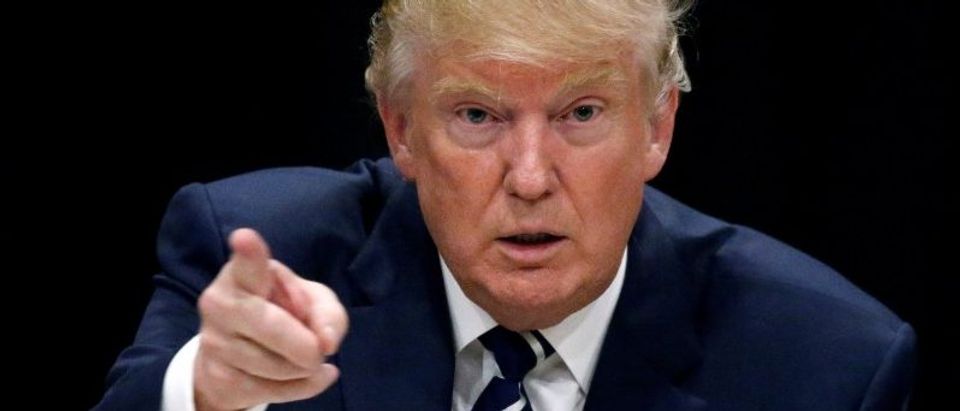One can argue that the most important moment in American democracy happened when President John Adams (having pushed through his “midnight appointments”) snuck out of town on the eve of Thomas Jefferson’s inauguration.
But what if this peaceful (if impolite) transition of power hadn’t occurred? What if Adams had simply declared that the election was “rigged” and called out the military to arrest Jefferson?
Luckily, we will never know.
Despite frequent cries of “Caesarism” (this was before we could compare our opponents to Hitler) and some very serious ups and downs, American democracy has been blessed with a system that has largely served us well for 238 years.
For the first time in my lifetime, however, people seem to be wondering if the system is self-destructing.
This debate was on full display today on Morning Joe when Anand Giridharadas squared off against Joe Scarborough. In case you haven’t been paying attention, Donald Trump’s election and subsequent rhetoric (his baseless suggestion that voter fraud cost him the popular vote, his attacks on media figures and outlets, and his recent suggestion that the penalty for flag burning should be jail or loss of citizenship) has alarmed people like Giridharadas who worry he has the kind of authoritarian tendencies that might flout the rule of law.
In the past, there have essentially been two things stopping American leaders from dictatorial powers: Character and the system. Ideally, we would elect the kind of people who would, like Washington, serve two terms and then (voluntarily) go back to the farm. But in the event this did not occur, our system would prevent the seizure of power (anyone who tried would fail miserably—and go down in history as an ignominious figure). It’s worth considering whether (A) Donald Trump’s character or (B) the ability of the system to contain him are adequate safeguards.
The fact that he has rolled over so many barriers, traditions, institutions, and incompetent and/or corrupt political elites along the way suggests that his future ambitions might not be so easily deterred. Let’s say President Trump wants to do something and is told “No.” Who’s going to stop him? I mean, how many divisions does the “American system” have?
Or, to echo a point raised by Giridharadas, let’s say that some sort of major event—a 9/11-type disaster—occurs. Who’s going to tell President Trump that he can’t, in this time of emergency, postpone an election, dissolve Congress, or [insert whatever apocalyptic fear you might be harboring]? And who would the American public support?
These fears are not entirely irrational. According to a study reported in today’s New York Times, “signs of democratic deconsolidation in the United States and many other liberal democracies are now similar to those in Venezuela before its crisis.” For example, “researchers found that the share of Americans who say that army rule would be a ‘good’ or ‘very good’ thing had risen to 1 in 6 in 2014, compared with 1 in 16 in 1995.”
More sanguine observers, such as Joe Scarborough, assure us that the American system (with its balance of powers, federalism, and checks and balances) pits ambition against ambition, thus containing the ambitions of any one strongman. They caution us to be vigilant, but they assure us that America is fundamentally resilient. Pay no mind to the things Trump says, they assure us; it’s just rhetoric. We should just keep calm and carry on.
I hope that the latter group is correct—it’s certainly true that people have cried “wolf” (or “fascist”) many times before. Ultimately, this comes down to a fundamental question of how resilient or fragile you believe democracy is. I’m of the opinion that what we have is so precious that the safest assumption is that it could be lost.


